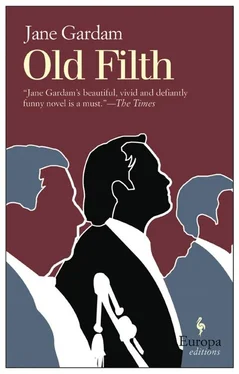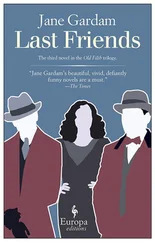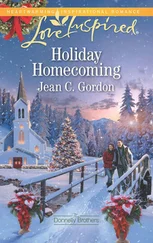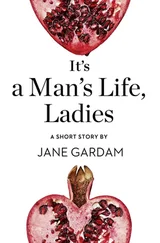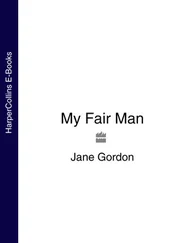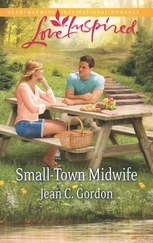When she had both feet on the rickety platform, Auntie May looked at the girl and asked if she were the wet-nurse’s big daughter. Ada said yes, and looked at the bundle, and Auntie May put it in her arms. Ada’s mother went by, head-down over her own baby, afraid of seeing the District Officer somewhere in the shadows.
But there was no District Officer. Alistair Feathers was at his desk working, tonight not even drinking.
When Auntie May was admitted, he shook hands with her and sent for a servant to see her to her room, show her the bathhouse, make sure that food was taken to her.
“I can stay for several days,” she said. “I’ll risk the monsoon. To see that all is as well as can be for him.”
“F-f-for him?”
“For your son. He is Edward. He’s a fine boy.”
“Good. Good.”
He did not ask to see the baby who, by the time Auntie May left a week later, was the amazement of the village. A child with bright-blue eyes and white, white skin and curly chestnut hair. After Auntie May had left with a donation of ten pounds to the Mission, he gave orders for Ada to take charge of the child. Auntie May had already given orders (and the ten pounds) that Ada should sit each evening with the baby on the steps of his father’s verandah. This she did for many months, but Alistair Feathers never came near.
During the monsoon Ada and the baby moved up the steps and on to the verandah and sat there listening to the deluge, the crashing steaming torrent of the rain, and at last the girl was told by the District Officer’s servant to go away and take the child to live with her and his wet-nurse in their family hut. And so the baby’s first years were in the Long House among brown skins, brown eyes, scraps of coloured clothes, the Malay language; often sleeping, sometimes making musical singing, dreamily passing the time against the roar of the river and the rain. At night the lamps swung from the rafters and the baby watched the flames with their haloes of moths, heard the baboons with pleasure, saw the silver lizards without fear — their questing, swinging heads — and the geckos hooked into the mesh of the walls puffing out their lurid throats. He listened to the racket of the rats in the thatch, once watched with rapture as a fat snake came sliding up from a post-hole. Observed it being killed. He was satisfied by the nourishment of the wetnurse but passionate in his love for the girl.
Soon he stretched to pat her face, suck her chin, her ear. One day, at two months, gazing at her he gave a crow of laughter like a boy of two. Because of the memory of the child’s kind mother, the Long House respected him and accepted him, an ivory child in their warm dun dust, and he was passed about, rocked to sleep, talked to and sung to and understood only Malay. By the time he was one he rolled and tottered and waddled in the village compound with the other children. There were a number of pale-skinned half-caste children from the Raj’s peccadilloes. Sometimes this child’s father crossed the compound but seemed not to see him, not to notice his wife’s chestnut curls.
The village observed the District Officer. Captain Feathers was a strong just governor, but nobody liked him. His child was given extra attention and, from Ada, intense, unswerving, obsessive adoration.
When the child was four and a half, Auntie May came back. Big and strong, off the boat and over the landing stage to the compound, she looked about her, at once spotting Edward with his orange hair, naked and sucking a mango, his feet and hands as pale with the mud of the compound as the other children’s. She made no move towards him — the women were watching from the dark openings of the huts — but nodded and smiled in his direction, to his surprise, for his mouth fell open — and went on to climb the steps of the verandah.
She was expected: there had been correspondence for some time. But Captain Feathers had not been at the landing stage.
She had not seen him for four and a half years but rumour had it that he was unchanged in his attitude to his son, that his shattered ankle was worse and that he was drinking heavily. It was said he had become eccentrically pedantically absorbed in his work and the management of his District. He was celibate.
No girls were brought to him by their mothers as “extra servants,” though he was handsome still, his eyes bright with malaria. He turned away from the women’s beauty to the beauty of the whiskey in the glass. It did not seem to harm him. He had the Scottish immunity. He drank alone, for he had no friends. “Oh, Miss Neal. Auntie May. G-g-good evening.”
He looks tired, she thought.
She had come to take the child down to the Port, to be taught English for six months before the journey Home, where he would live with a Welsh family until he was eight. After that, he would go to his father’s old Prep school and then his father’s old Public school. Auntie May knew of the Welsh family with whom he was to be fostered. They were used to Raj Orphans. There would be home-cooked food, and it would be cheap (Alistair Feathers was a Scot). And there were two aunts about, his sisters, in Lancashire which was not really far away from North Wales.
“And of course,” said Auntie May at dinner, watching the lowering of the whiskey in the glass at the other end of the lamp-lit table, “you will have to take him to Wales. In six months’ time. And you will by then have paid for him in advance.”
Alistair Feathers’s eyes stared. Outside, the madhouse noises of the jungle. Inside, the servant padding about, taking plates, setting down others, offering fruit.
“He seems well and happy,” he said. “I have never seen the need for him to go Home. It’s not the law.”
“You know perfectly well that it is the custom. Because of the risk of childhood illnesses out here. You went Home yourself.”
“I did,” said Alistair. “So help me God.”
Auntie May on the whole agreed with him. She’d seen great damage. Some children forgot their parents, clung to their adoptive families who later often forgot them. There were bad tales. Others grew to say they’d had a much better time in England away from their parents, whom they did not care for. There were children who worked hard at growing stolid and boring, and made marriages only in order to have roots of their own at last. They never told anything. And Auntie May had never been sure about the ferocity of Eastern childhood diseases. But in this case there was no mother.
“You’ve had no leave in ten years, Alistair. It isn’t safe. Nobody knows better than you what happens out here to District Officers who work too hard. They drink and go native.”
Alistair fastidiously poured another whiskey and said, “At least I still change for dinner.”
He was in dinner jacket and black tie that would have been acceptable at the Ritz. Not a bead of sweat. Auntie May in sarong and sandals, her chin a little more whiskery, her arms resting almost to her elbows on the table a little more muscular, had put on weight and felt hot. She looked at Alistair and had to admire. She wanted to take his hand. Her hardest task now as she grew older in the Ministry was to deal with her longing to be touched — hugged, stroked by anyone, any human being — a friend, a lover, a child or even (and here she scented danger) a servant. Of either sex. She prayed about it, asking that God’s encircling arms would bring comfort. They did not.
“Alistair, you have no choice. You have a son who has no mother. At Home there will be your sisters, both unmarried. They will love a little nephew. They don’t answer any of my letters but you say you’ve been making arrangements, telling them? You have to take leave and accompany the boy home. It’s what his mother would have done.”
Читать дальше
